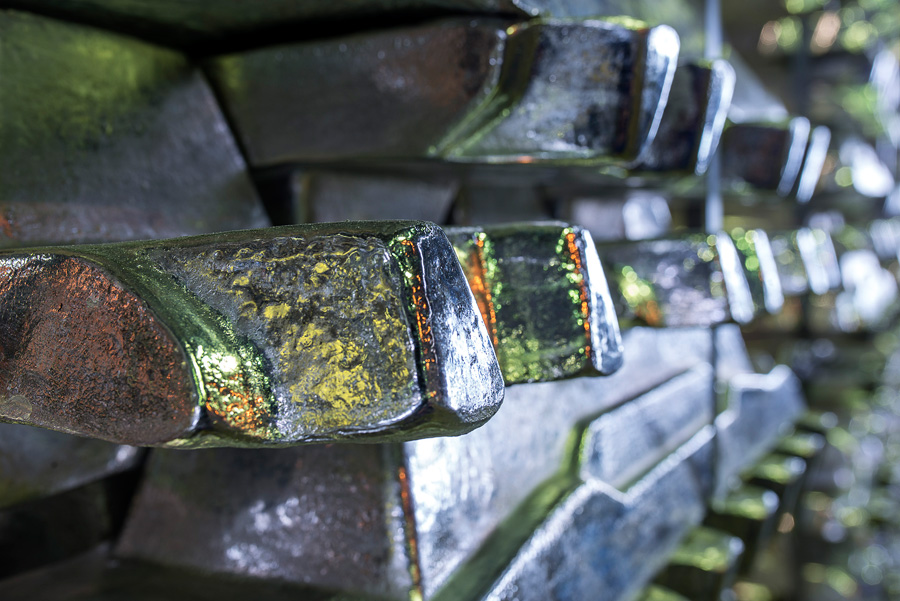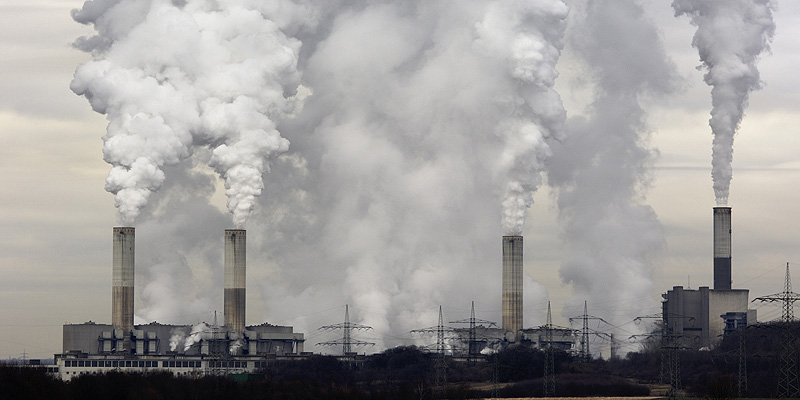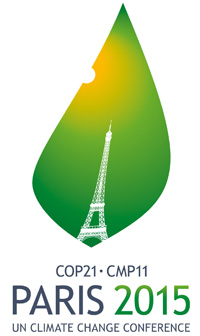Aluminium is produced from bauxite. First, aluminium oxide is extracted from bauxite via a refining process known as the 'Bayer Process'. Known as alumina, the aluminium oxide contains oxygen that is removed to obtain pure aluminium. This process is called electrolysis, and it requires a significant amount of energy.
For such an electrical intensity, two energy sources are currently used.

21st United Nations
Conference on Climate Change
Conference on Climate Change
Aluminium's traceability at the heart of the debate
September 24, 2015
Whilst the global need for aluminium is increasing (7% growth forecast for 2015), the issue of its environmetal footprint is the subject of ongoing debate. Production of energy necessary for the aluminium production at certain facilities using thermal coal is ultra-polluting in terms of CO2 emissions. This type of production is responsible for five times more CO2 emissions compared to production of aluminium with the use of renewable energy.
Electrolysis by coal
An ultra-polluting solution

Aluminium production is extremely energy consuming. However, this is a problem that can be easily avoided when energy is harnessed from renewable sources.
A direct electrical current of 100,000 – 320,000 amps at least is needed.
Traditional aluminium producers such as Canada and Russia have adopted the use of renewable energy, namely hydropower, to drastically reduce their environmetal footprint.
Coal, the other energy source, is being used by newer aluminium producers such as China and India.
Coal, the other energy source, is being used by newer aluminium producers such as China and India.
CHINA
In 2014, China alone produced 52% of the world's aluminium, but was responsible for 68% of the ensuing global aluminium production emissions.

Photo: The Huffington Post
This clear imbalance speaks volumes about the harmfulness of the use of coal when compared to the use of hydropower.
It is important to acknowledge that coal plants have disastrous effect on the environment. As second source of primary energy (30.1%) after oil (32.9%), coal provides for over 40% of global electricity production.
If the reserves are significant (approximately 110 years of consumption) and operating costs are stable and highly competitive, coal is therefore the most toxic fossil fuel.
It is important to acknowledge that coal plants have disastrous effect on the environment. As second source of primary energy (30.1%) after oil (32.9%), coal provides for over 40% of global electricity production.
If the reserves are significant (approximately 110 years of consumption) and operating costs are stable and highly competitive, coal is therefore the most toxic fossil fuel.
Groundwater pollution, sulfur emissions from sulfur dioxide (which is responsible for acid rain) and greenhouse gases (CO2, methane, nitrogen oxide) are all a byproduct of the use of coal, meaning that it is even more polluting than oil.
One of COP21's main objectives is to encourage countries to take the necessary measures to ensure that the global temperature does not increase and exceed pre-industrial levels by more than 2°C. This goal is within reach of the aluminium producers utilizing hydropower; however, it is being severely affected by the countries who continue to use coal.
The use of coal is cheaper during the aluminium production process. The countries which use coal are therefore producing competitive prices and are in danger of undermining current eco-friendly production facilities.
What can we do to stop this process? There is no doubt COP 21 has to tackle this problem. It is necessary to ask the right questions, and propose suitable answers.
One of COP21's main objectives is to encourage countries to take the necessary measures to ensure that the global temperature does not increase and exceed pre-industrial levels by more than 2°C. This goal is within reach of the aluminium producers utilizing hydropower; however, it is being severely affected by the countries who continue to use coal.
The use of coal is cheaper during the aluminium production process. The countries which use coal are therefore producing competitive prices and are in danger of undermining current eco-friendly production facilities.
What can we do to stop this process? There is no doubt COP 21 has to tackle this problem. It is necessary to ask the right questions, and propose suitable answers.

COP21
The 21st United Nations Conference on Climate Change, COP21, will be held in Paris on November 30th – December 11th. It is the world's largest, and leading, discussion on climate change.
Clean aluminium must be recognised via increased traceability
Today the responsibility of this problem falls on everyone's shoulder
It must be monitored in a strict legal framework. France will host and chair COP21 in late 2015, and this gathering is already renowned for being 'the last chance' to finally tackle global warming. We must lay down the rules of sustainable development in the aluminium industry, and place pressure on big polluters to make a change, so we can finally address this problem.
If COP21 enforces strengthened aluminium traceability rules, large and small corporate clients, most participants of the CSR charter, would only have the option to support less pollutant aluminium production, despite having to pay higher prices. This is because we are in a time where a 'greener world' attitude is necessary, and consumers are increasingly sensitive to the issue.
Despite the ongoing macro-economic conditions that will no doubt play a part in COP21, everyone needs to be fully aware of the short-term and toxic profits from aluminium production using coal.
If current producers using coal do not change their tactics voluntarily, Western companies should turn to clean aluminium for at least two reasons; firstly, for their own image and secondly, for their profitability. Both are essential to any company.
If Western companies switched to clean aluminium it would create a reduction in demand for coal produced aluminium. Therefore over time, this lack of demand would force coal aluminium producers into switching to renewable energy resources.
If COP21 enforces strengthened aluminium traceability rules, large and small corporate clients, most participants of the CSR charter, would only have the option to support less pollutant aluminium production, despite having to pay higher prices. This is because we are in a time where a 'greener world' attitude is necessary, and consumers are increasingly sensitive to the issue.
Despite the ongoing macro-economic conditions that will no doubt play a part in COP21, everyone needs to be fully aware of the short-term and toxic profits from aluminium production using coal.
If current producers using coal do not change their tactics voluntarily, Western companies should turn to clean aluminium for at least two reasons; firstly, for their own image and secondly, for their profitability. Both are essential to any company.
If Western companies switched to clean aluminium it would create a reduction in demand for coal produced aluminium. Therefore over time, this lack of demand would force coal aluminium producers into switching to renewable energy resources.
This article was first published by Greenetvert.fr.